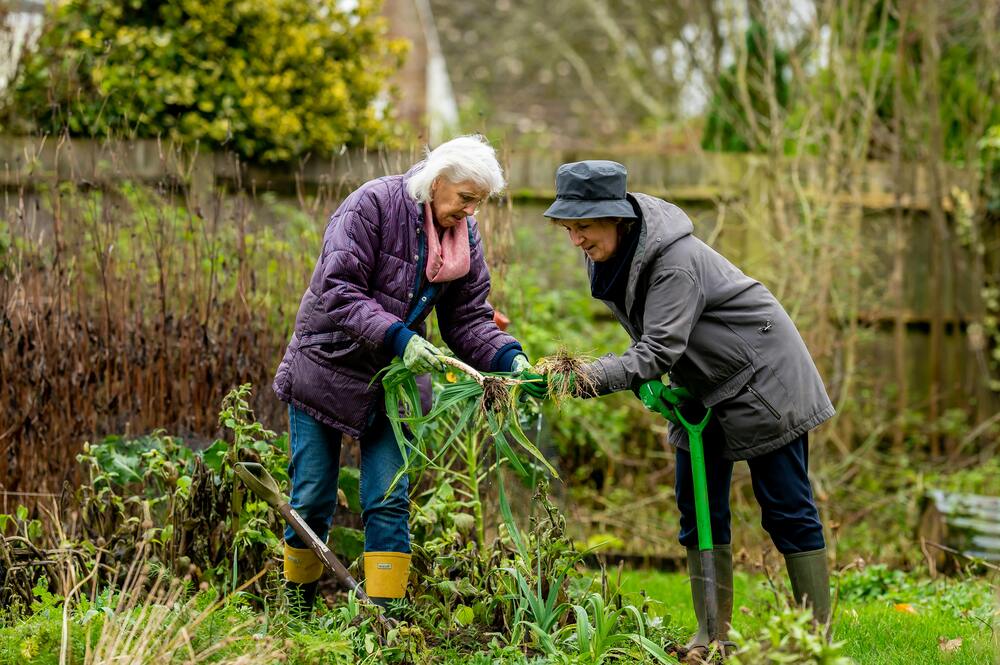Are Coffee Grounds Good for the Garden or Just a Myth?
Coffee isn’t just a morning ritual — for many of us, it’s an essential part of the day. But once the cup is empty and the grounds are left behind, you might wonder: Can I use these in my garden, or is it just another gardening myth?
Over the years, coffee grounds have gained a bit of a cult following among expert gardeners, praised for their supposed ability to enrich soil, repel pests, and even boost plant growth. But as with any home gardening tip, it’s important to separate fact from fiction.
In this article, we’ll dig into the science, the practical uses, and the potential drawbacks of using coffee grounds in your garden. By the end, you’ll know whether they’re a gardener’s secret weapon — or just a well-loved gardening myth.
In this blog you’ll learn:
- The appeal of coffee grounds in the garden
- What’s in coffee grounds
- Myths about coffee grounds in the garden
- How to use coffee grounds
The Appeal of Coffee Grounds in the Garden

The idea of using coffee grounds in the garden has been around for decades. It makes sense on the surface: coffee is natural, biodegradable, and seems too good to throw away.
The grounds are essentially the leftover coffee bean particles after brewing. They contain organic matter, trace minerals, and have a rich, earthy texture — all qualities that sound perfect for garden soil. Plus, the notion of “free fertiliser” is attractive for anyone looking to keep their garden healthy without constantly buying products.
But before you start dumping your morning coffee remnants onto your plants, it’s worth looking closer at what coffee grounds actually do.
What’s in Coffee Grounds?
Brewed coffee grounds are surprisingly nutrient-rich. While they’re not a complete fertiliser on their own, they contain useful components that can help support plant health:
- Nitrogen – Coffee grounds are particularly high in nitrogen, an essential nutrient for leafy growth.
- Phosphorus & Potassium – Present in smaller amounts, these help with flowering and overall plant resilience.
- Micronutrients – Such as magnesium, calcium, copper, and zinc, which support various plant functions.
- Organic Matter – Helps improve soil structure and water retention.
While that sounds like a dream list for any gardener, it’s not the full story — coffee grounds also have some characteristics that can cause problems if used incorrectly.
Myth vs. Reality: The Truth About Coffee Grounds

Let’s break down some of the most common claims about coffee grounds and see what science says.
1. Coffee Grounds Acidify the Soil
The Myth: Coffee grounds make the soil acidic, making them great for acid-loving plants like blueberries, camellias, and azaleas.
The Truth: Fresh, unbrewed coffee grounds are acidic. But once you’ve brewed your coffee, most of that acidity is removed into your cup. Used coffee grounds are closer to neutral in pH — meaning they won’t drastically change soil acidity.
That said, they can have a slight acidifying effect over time, so they may be beneficial for plants that prefer mildly acidic soil. Just don’t rely on them as your primary method of changing soil pH.
2. Coffee Grounds Keep Pests Away
The Myth: Sprinkle coffee grounds around plants and pests like slugs, snails, and even cats will stay away.
The Truth: There’s some truth here. Caffeine is toxic to many insects and pests, and the gritty texture can be unpleasant for soft-bodied creatures like slugs. However, results can be inconsistent. Some gardeners swear by it, while others notice little difference.
If you’re battling slugs and snails, coffee grounds can be one part of your strategy — but don’t expect them to be a miracle fix.
3. Coffee Grounds Are a Complete Fertiliser
The Myth: Coffee grounds alone can replace store-bought fertilisers.
The Truth: While they do contain valuable nutrients, coffee grounds don’t have the full range of nutrients plants need in the right proportions. They’re best used as a supplement to your existing fertiliser regime, not as a replacement.
4. Coffee Grounds Can Harm Plants
The Myth: Coffee grounds can be toxic to plants and stunt their growth.
The Truth: There’s a kernel of truth here. In very large amounts, coffee grounds can create a dense layer that blocks water from reaching the soil and may also release compounds that slow seed germination. This is especially an issue if you use grounds fresh and uncomposted.
The solution? Use them in moderation, and mix them into the soil or compost rather than spreading them thickly on top.
How to Use Coffee Grounds in the Garden

If you’re keen to put your daily coffee habit to good use, here are the safest and most effective ways to add coffee grounds to your garden.
1. Add to Compost
This is one of the best uses for coffee grounds. They’re considered a “green” compost ingredient, rich in nitrogen, and should be balanced with “brown” materials like dried leaves, cardboard, or straw.
Mixing them into compost helps break down any potentially harmful compounds, creating a safe and nutrient-rich compost for your garden.
2. Mix into Garden Beds
Sprinkle a thin layer of used coffee grounds over the soil and gently work them in. This adds organic matter and helps improve soil texture. Avoid thick layers, which can form a crust.
3. Use as Mulch (With Caution)
Coffee grounds can be used as part of a mulch mix, but don’t use them on their own. Combine with other mulch materials like bark, straw, or shredded leaves to allow airflow and prevent compaction.
4. Feed Worms
If you have a worm farm, your worms will love small amounts of coffee grounds. They help break down organic matter faster and produce nutrient-rich worm castings for your plants.
5. Repel Certain Pests
A sprinkle of coffee grounds around seedlings or tender plants can help deter some pests. Remember, results vary, so use alongside other pest control methods.
Best Practices for Using Coffee Grounds
To get the benefits without the drawbacks, follow these tips:
- Moderation is key – A small handful spread around each plant or mixed into compost is plenty.
- Use brewed grounds, not fresh – Fresh coffee grounds are too acidic and can damage plants.
- Avoid thick layers – They can compact and block moisture.
- Mix, don’t dump – Incorporate into soil or compost rather than leaving them sitting on top.
- Observe your plants – If you notice slowed growth or yellowing leaves, cut back on use.
When Coffee Grounds Aren’t a Good Idea
While coffee grounds can be a helpful gardening tool, they’re not suitable for every situation. Avoid using them:
- Directly on seedlings or germinating seeds (can inhibit growth)
- On plants sensitive to caffeine
- In very large quantities without mixing into other materials
For some plants, like tomatoes, coffee grounds may actually stunt growth if used in excess. Always test small amounts before committing to a full garden treatment.
So… Are Coffee Grounds a Garden Treasure or Just a Myth?
The verdict? They’re not a miracle cure, but they’re far from useless. Coffee grounds offer real benefits when used properly — they enrich soil with organic matter, contribute nitrogen, and can help deter some pests. However, they’re not a one-stop solution for soil health or plant nutrition.
Think of coffee grounds as a useful ingredient in your overall gardening routine, not the whole recipe.
Professional Help for a Thriving Garden

If you’re a New Zealand homeowner who loves the idea of a lush, healthy garden but doesn’t have the time to experiment with soil amendments, that’s where professional help can make all the difference.
At Jim’s Mowing NZ, we provide expert lawn mowing and garden maintenance services to keep your outdoor spaces in top shape — whether you’re using coffee grounds or not. We can advise on the best natural and commercial options to boost your garden’s health, tailored to your local conditions.
Conclusion
Coffee grounds can be a helpful addition to your gardening toolkit, but only when used wisely. They’re rich in organic matter and nitrogen, work well in compost, and can deter some pests — but they’re not a substitute for balanced fertilisation or proper soil care.
So go ahead, recycle those coffee grounds into your garden — just don’t expect them to work miracles on their own. And if you’d rather skip the trial and error, call the gardening experts who know what works in New Zealand’s unique climate.
Call Jim’s Mowing NZ today on 0800 454 654 to book your garden maintenance service and keep your outdoor space looking its absolute best.


